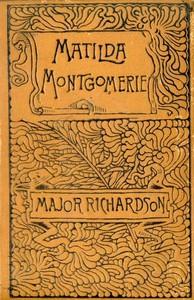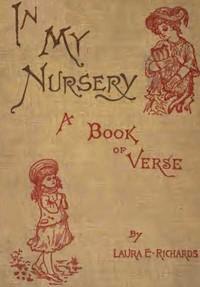|
|
Read this ebook for free! No credit card needed, absolutely nothing to pay.Words: 112983 in 28 pages
This is an ebook sharing website. You can read the uploaded ebooks for free here. No credit cards needed, nothing to pay. If you want to own a digital copy of the ebook, or want to read offline with your favorite ebook-reader, then you can choose to buy and download the ebook.

: Matilda Montgomerie; Or The Prophecy Fulfilled by Richardson Major John - United States History War of 1812 Fiction@FreeBooksWed 07 Jun, 2023 rmed with the formidable knife which he had about his person, the settler made the most desperate and infuriated efforts to reach his assailant; but in so masterly a manner did his adversary use his simple weapon, that every attempt was foiled, and more than once did the hard iron-wood descend upon his shoulders, in a manner to be heard from the shore. Once or twice the settler stooped to evade some falling blow, and, rushing forward, sought to sever the hand which still retained its hold of the stern; but, with an activity remarkable in so old a man as his assailant, for he was upwards of sixty years of age, the hand was removed--and the settler, defeated in his object, was amply repaid for his attempt, by a severe collision of his bones with the cudgel. At length, apparently enjoined by his companion, the younger removed his paddle, and, standing up also in the canoe, aimed a blow with its knobbed handle at the head of the horse, at a moment when his rider was fully engaged with Desborough. The quick-sighted old man saw the action, and, as the paddle descended, an upward stroke from his own heavy weapon sent it flying in fragments in the air, while a rapid and returning blow fell upon the head of the paddler, and prostrated him at length in the canoe. The opportunity afforded by this diversion, momentary as it was, was not lost upon Desborough. The horseman, who, in his impatience to avenge the injury offered to the animal, which seemed to form a part of himself, had utterly forgotten the peril of his hand; and before he could return from the double blow that had been so skilfully wielded, to his first enemy, the knife of the latter had penetrated his hand, which, thus rendered powerless, now relinquished its grasp. Desborough, whose object--desperate character as he usually was--seemed now rather to fly than to fight, availed himself of this advantage to hasten to the bows of the canoe, where, striding across the body of his insensible companion, he with a few vigorous strokes of the remaining paddle, urged the lagging bark rapidly ahead. In no way intimidated by his disaster, the courageous old man, again brandishing his cudgel, and vociferating taunts of defiance, would have continued the pursuit; but panting as he was, not only with the exertion he had made, but under the weight of his impatient rider, in an element in which he was supported merely by his own buoyancy, the strength and spirit of the animal began now perceptibly to fail him, and he turned, despite of every effort to prevent him, towards the shore. It was fortunate for the former that there were no arms in the canoe, or neither he nor the horse would, in all probability, have returned alive; such was the opinion, at least, pronounced by those who were witnesses of the strange scene, and who remarked the infuriated but impotent gestures of Desborough, as the old man, having once more gotten his steed into depth, slowly pursued his course to the shore, but with the same wild brandishing of his enormous cudgel, and the same rocking from side to side, until his body was often at right angles with that of his jaded, but sure-footed beast. As he is, however, a character meriting rather more than the casual notice we have bestowed, we shall take the opportunity, while he is hastening to the discomfited officers on the beach, more particularly to describe him. Nearly midway between Elliott's and Hartley's points, both of which are remarkable for the low and sandy nature of the soil, the land, raising gradually towards the centre, assumes a more healthy and arable aspect; and, on its highest elevation, stood a snug, well cultivated property, called Girty's farm. From this height, crowned on its extreme summit by a neat and commodious farm-house, the far reaching sands, forming the points above-named, are distinctly visible. Immediately in the rear, and commencing beyond the orchard which surrounded the house, stretched forestward, and to a considerable distance, a tract of rich and cultivated soil, separated into strips by zig-zag enclosures, and offering to the eye of the traveller, in appropriate season, the several species of American produce, such as Indian corn, buck wheat, &c., with here and there a few patches of indifferent tobacco. Thus far of the property, a more minute description of which is unimportant. The proprietors of this neat little place were a father and son, to the latter of whom was consigned, for reasons which will appear presently, the sole management of the farm. Of him we will merely say that, at the period of which we treat, he was a fine, strapping, dark curley-haired, white-teethed, red-lipped, broad-shouldered, and altogether comely and gentle tempered youth, of about twenty, who had, although unconsciously, monopolized the affections of almost every well favored maiden of his class, for miles around him--advantages of nature from which had resulted a union with one of the prettiest of the fair competitors for connubial happiness. The father we may not dismiss so hastily. He was--but, before attempting the portraiture of his character, we will, in the best of our ability, sketch his person. Let the reader fancy an old man of about sixty, possessed of that comfortable amptitude of person which is the result rather of a mind at peace with itself, and undisturbed by worldly care, than of any marked indulgence in indolent habits. Let him next invest this comfortable person in a sort of Oxford grey, coarse capote, or frock, of capacious size, tied closely round the waist with one of those-parti-colored worsted sashes, we have, on a former occasion described as peculiar to the bourgeois settlers of the country. Next, suffering the eye to descend on and admire the rotund and fleshy thigh, let it drop gradually to the stout and muscular legs, which he must invest in a pair of closely fitting leathern trowsers, the wide-seamed edges of which are slit into innumerable small strips, much after the fashion of the American Indian. When he has completed the survey of the lower extremities, to which he must not fail to subjoin a foot of proportionate dimensions, tightly moccasined, and, moreover, furnished with a pair of old English hunting spurs, the reader must then examine the head with which this heavy piece of animated machinery is surmounted. From beneath a coarse felt hat, garnished with an inch-wide band or ribbon, let him imagine he sees the yet vigorous grey hair, descending over a forehead not altogether wanting in a certain dignity of expression, and terminating in a beetling brow, silvered also with the frost of years, and shadowing a sharp, grey, intelligent eye, the vivacity of whose expression denotes its possessor to be far in advance, in spirit, even of his still active and powerful frame. With these must be connected a snub nose--a double chin, adorned with grizzly honors, which are borne, like the fleece of the lamb, only occasionally to the shears of the shearer--and a small, and not unhandsome, mouth, at certain periods pursed into an expression of irresistible humor, but more frequently expressing a sense of lofty independence. The grisly neck, little more or less bared, as the season may demand--a kerchief loosely tied around the collar of a checkered shirt--and a knotted cudgel in his hand--and we think our sketch of Simon Girty is complete. Nor must the reader picture to himself this combination of animal properties, either standing, or lying, or walking, or sitting; but in a measure glued, Centaur-like, to the back of a noble stallion, vigorous, active, and of a dark chestnut color, with silver mane and tail. In the course of many years that Simon had resided in the neighborhood, no one could remember to have seen him stand, or lie, or walk, or sit, while away from his home, unless absolutely compelled. Both horse and rider seemed as though they could not exist while separated, and yet Silvertail was not more remarkable in sleekness of coat, soundness of carcase, and fleetness of pace, than his rider was in the characteristics of corpulency and joviality. Simon Girty had passed the greater part of his younger days in America. He had borne arms in the revolution, and was one of those faithful loyalists, who preferring rather to abandon a soil which, after all, was one of adoption, than the flag under which they had been nurtured, had, at the termination of that contest, passed over into Canada. Having served in one of those irregular corps, several of which had been employed with the Indians, during the revolutionary contest, he had acquired much of the language of these latter, and to this knowledge was indebted for the situation of interpreter which he had for years enjoyed. Unhappily for himself, however, the salary attached to the office was sufficient to keep him in independence, and, to the idleness consequent on this, might have been attributed the rapid growth of a vice--an addiction to liquor--which unchecked indulgence had now ripened into positive disease. Were such a character to make his appearance in the Mother Country, endangering, to all perception, the lives of the Sovereign's liege subjects, he would, if in London, be hunted to death like a wild beast, by at least one half of the Metropolitan police; and, if in a provincial town, would be beset by a posse of constables. No one, however--not even the solitary constable of Amherstburgh, ever ventured to interfere with Simon Girty, who was in some degree a privileged character. Nay, strange as it may appear, notwithstanding his confirmed habit of inebriety, the old man stood high in the neighborhood, not only with simple but with gentle, for there were seasons when he evinced himself "a rational being," and there was a dignity of manner about him, which, added to his then quietude of demeanor, insensibly interested in his favor, those even who were most forward to condemn the vice to which he was unfortunately addicted. Not, be it understood, that in naming seasons of rationality, we mean seasons of positive abstemiousness; nor can this well be, seeing that Simon never passed a day of strict sobriety during the last twenty years of his life. But, it might be said, that his three divisions of day--morning, noon and night--were characterised by three corresponding divisions of drunkenness--namely, drunk, drunker, and most drunk. It was, therefore, in the first stage of his graduated scale, that Simon appeared in his most amiable and winning, because his least uproarious, mood. His libations commenced at early morn, and his inebriety became progressive to the close of the day. To one who could ride home at night, as he invariably did, after some twelve hours of hard and continued drinking, without rolling from his horse, it would not be difficult to enact the sober man in its earlier stages. As his intoxication was relative to himself, so was his sobriety in regard to others--and although, at mid-day, he might have swallowed sufficient to have caused another man to bite the dust, he looked and spoke, and acted, as if he had been a model of temperance. If he passed a lady in the street, or saw her at her window Simon Girty's hat was instantly removed from his venerable head, and his body inclined forward over his saddle-bow, with all the easy grace of a well-born gentleman, and one accustomed from infancy to pay deference to woman; nay, this at an hour when he had imbibed enough of his favorite liquor to have rendered most men insensible even to their presence. These habits of courtesy, extended moreover to the officers of the garrison, and such others among the civilians as Simon felt to be worthy of his notice. His tones of salutation, at these moments, were soft, his manner respectful, even graceful; and while there was nothing of the abashedness of the inferior, there was also no offensive familiarity, in the occasional conversations held by him with the different individuals, or groups, who surrounded and accosted him. Such was Simon Girty, in the first stage of his inebriety, no outward sign of which was visible. In the second, his perception became more obscured, his voice less distinct, his tones less gentle and insinuating, and occasionally the cudgel would rise in rapid flourish, while now and then a loud halloo would burst from lungs, which the oceans of whiskey they had imbibed had not yet, apparently, much affected. These were infallible indices of the more feverish stage, of which the gallopings of Silvertail--the vociferations of his master--the increasing flourishing of the cudgel--the supposed danger of children--and the consequent alarm of mothers, together with the harangues to the Indian auditory, were the almost daily results. There was one individual, however, in the town of Amherstburgh, of whom, despite his natural wilfulness of character, Simon Girty stood much in awe, and that to such a degree, that if he chanced to encounter him in his mad progress, his presence had the effect of immediately quieting him. This gentleman was the father of the Granthams, who, although then filling a civil situation, had formerly been a field officer in the corps in which Simon had served; and who had carried with him into private life those qualities of stern excellence for which he had been remarkable as a soldier--qualities which had won to him the respect and affection, not only of the little community over which, in the capacity of its chief magistrate, he had presided, but also of the inhabitants of the country generally for many miles around. Temperate to an extreme himself, Major Grantham held the vice of drunkenness in deserved abhorrence, and so far from sharing the general toleration extended to the old man, whose originality often proved a motive for encouragement; he never failed, on encountering him, to bestow his censure in a manner that had an immediate and obvious effect on the culprit. If Simon, from one end of the street, beheld Major Grantham approaching at the other, he was wont to turn abruptly away; but if perchance the magistrate came so unexpectedly upon him as to preclude the possibility of retreat, he appeared as one suddenly sobered, and would rein in his horse, fully prepared for the stern lecture which he was well aware would ensue. It afforded no slight amusement to the townspeople, and particularly the young urchins, who usually looked up to Simon with awe, to be witnesses of one of those rencontres. In a moment, the shouting--galloping--rampaging cudgel-wielder was to be seen changed, as if by some magic power, into a being of almost child-like obedience, while he listened attentively and deferentially to the lecture of Major Grantham, whom he both loved and feared. On these occasions, he would hang his head upon his chest--confess his error--and promise solemnly to amend his course of life, although it must be needless to add that never was that promise heeded. Not unfrequently, after these lectures, when Major Grantham had left him, Simon would turn his horse, and, with his arms still folded across his chest, suffer Silvertail to pursue his homeward course, while he himself, silent and thoughtful, and looking like a culprit taken in the fact, sat steadily in his saddle, without however venturing to turn his eye either to the right or to the left, as he passed through the crowd, who, with faces strongly expressive of mirth, marked their sense of the change which had been produced in the old interpreter. Those who had seen him thus for the first time, might have supposed that a reformation in one so apparently touched would have ensued; but long experience had taught that, although a twinge of conscience, or more probably fear of, and respect for, the magistrate, might induce a momentary humiliation, all traces of cause and effect would have vanished with the coming dawn. To the sterling public virtues he boasted, Simon Girty united that of loyalty in no common degree. A more staunch adherent to the British crown existed nowhere in the sovereign's dominions; and such was his devotedness to "King George," that, albeit he could not in all possibility have made the sacrifice of his love for whiskey, he would willingly have suffered his left arm to be severed from his body, had such proof of his attachment to the throne been required. Proportioned to his love for everything British, arose, as a natural consequence, his dislike for everything anti-British; and especially for those who under the guise of allegiance, had conducted themselves in a way to become objects of suspicion to the authorities. A near neighbor of Desborough, he had watched him as narrowly as his long indulged habits of intoxication would permit, and he had been the means of conveying to Major Grantham much of the information which had induced that uncompromising magistrate to seek the expulsion of the dangerous settler--an object which, however, had been defeated by the perjury of the unprincipled individual, in taking the customary oaths of allegiance. Since the death of Major Grantham, for whom, notwithstanding his numerous lectures, he had ever entertained that reverential esteem which is the result of the ascendancy of the powerful and virtuous mind over the weak, and not absolutely vicious--and for whose sons he felt almost a fatherly affection--old Girty had but indifferently troubled himself about Desborough, who was fully aware of what he had previously done to detect and expose him, and consequently repaid with usury--an hostility of feeling which, however, had never been brought to any practical issue. As a matter of course, Simon was of the number of anxious persons collected on the bank of the river, on the morning of the capture of the American gun-boat; but, as he was only then emerging from his first stage of intoxication , there had been no time for a display of those uproarious qualities which characterized the last, and which, once let loose, scarcely even the presence of the General could have restrained. With an acuteness, however, which is often to be remarked in habitual drunkards at moments when their intellect is unclouded by the confusedness to which they are more commonly subject, the hawk's eye of the old man had detected several particulars which had escaped the general attention, and of which he had, at a later period of the day, retained sufficient recollection to connect with an accidental, yet important discovery. Free books android app tbrJar TBR JAR Read Free books online gutenberg More posts by @FreeBooks
: In My Nursery by Richards Laura Elizabeth Howe - Children's poetry; Nursery rhymes@FreeBooksWed 07 Jun, 2023

: Oriental Rugs Antique and Modern by Hawley W A Walter Augustus - Rugs Oriental@FreeBooksWed 07 Jun, 2023
|
Terms of Use Stock Market News! © gutenberg.org.in2025 All Rights reserved.






